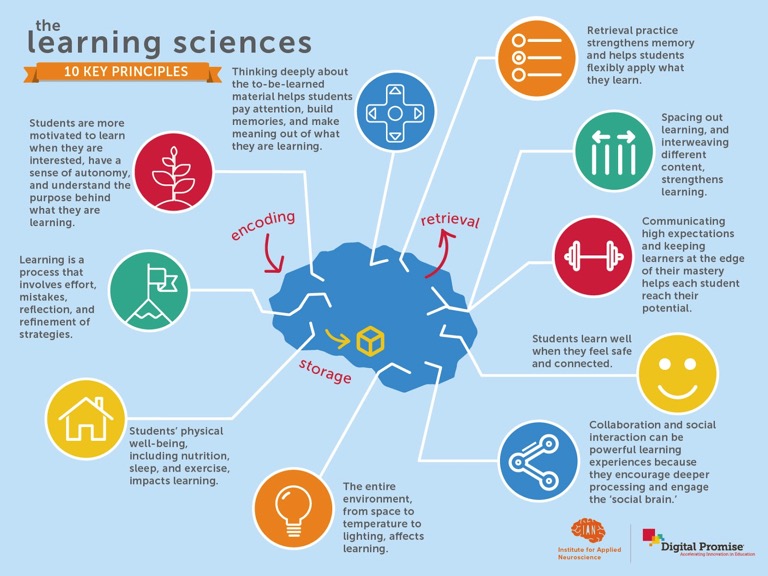By Babe Liberman
10 Insights from Learning Sciences about How Learning Works

1. Learning is a process that involves effort, mistakes, reflection, and refinement of strategies.
2. Thinking deeply about the to-be-learned material helps students pay attention, build memories, and make meaning out of what they are learning.
3. Communicating high expectations and keeping learners at the edge of their mastery helps each student reach their potential.
4. Retrieval practice strengthens memory and helps students flexibly apply what they learn.
5. Spacing out learning, and interweaving different content strengthens learning.
6. Students are more motivated to learn when they are interested, have a sense of autonomy, and understand the purpose behind what they are learning.
7. Students learn well when they feel safe and connected.
8. Collaboration and social interaction can be powerful learning experiences because they encourage deeper processing and engage the “social brain.”
9. Students’ physical well-being, including nutrition, sleep, and exercise, impacts learning.
10. The entire environment, from space to temperature to lighting, can affect learning.
How You Can Apply These Findings in the Classroom
Knowing how learning works is all well and good. But how do you take these research findings and apply them in your classroom? Below are a few tips based on research from the Institute for Applied Neuroscience, for providing your students with the best learning experience.
Do you find these posts helpful and informative? Please CLICK HERE to help keep us going!
